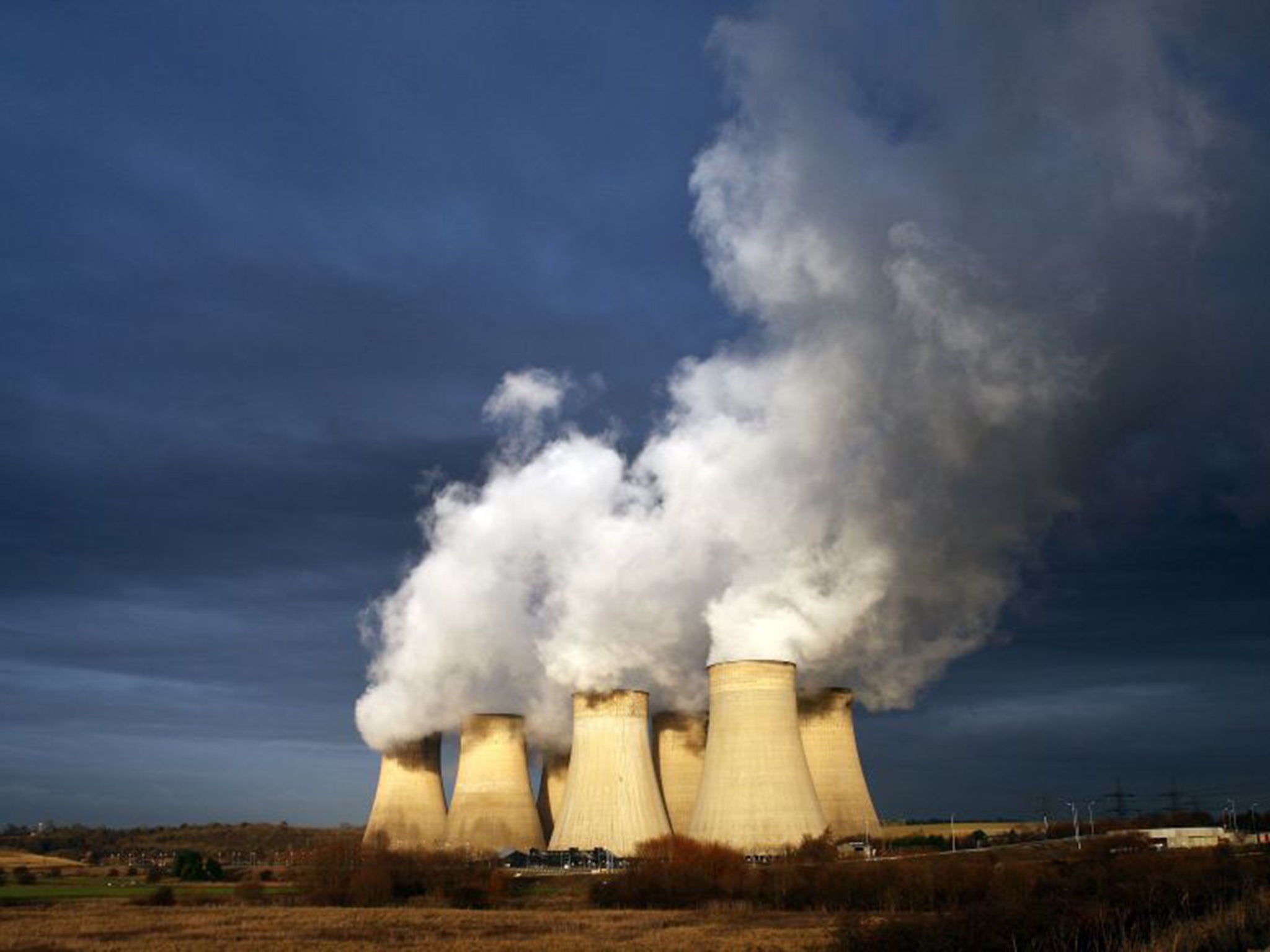G7 sets deadline of 2025 to phase out massive subsidies for fossil fuels
'This begs the question why the UK Government is still allowing vast new opencast coal mines to be proposed ... we don't need more warm words, we need our government to lock fossil fuels in the ground,' Friends of the Earth says

The G7 group of countries has set a deadline for the phasing out of subsidies for fossil fuels by 2025 – the first time it has actually set a date.
In an announcement in Tokyo, the group, which includes the UK, US, Japan, France and Germany, said it was committed to “swift and successful implementation” of the Paris Agreement on climate change, which was seen as a breakthrough.
However, commentators pointed out that the target was not binding and the "warm words" needed to be backed up by steps to stop using fossil fuels.
A report last year found that G20 nations were responsible for $452bn (£297bn) a year in production subsidies for fossil fuels. It found the UK was the only G7 country to actually increase state aid for fossil fuels.
And, in 2013, global consumer subsidies for fossil fuels totalled $548 billion a year – compared to just $121 billion for renewable energy – according to the International Energy Agency.
While not binding, the G7 statement suggests that could be about to change.
“Given the fact that energy production and use account for around two-thirds of global greenhouse gas emissions, we recognize the crucial role that the energy sector has to play in combatting climate change,” it said.
“We remain committed to the elimination of inefficient fossil fuel subsidies and encourage all countries to do so by 2025.”
Previously the G7 and G20 have talked about the need to end fossil fuel subsidies but without setting any kind of date for that to happen.
Dale Vince, founder of green energy company Ecotricity, said while the G7 had made a "great decision", the deadline should have been five years sooner.
"And we have to be careful that the definition of 'subsidy' covers all forms of financial support, to avoid wriggling," he cautioned.
"The International Monetary Fund estimates that Britain provides £30bn a year in fossil fuel subsidies – that's £1,000 per household per year – the sooner we end that the better.
"This money is driving climate change and polluting our air – some 50,000 Britons die every year just from that. In contrast we spend £2.6bn supporting renewable energy. And for that we get 25 per cent of our electricity every year and no pollution.
"It's time to stop paying the polluters and give renewable energy a level playing field."
James Court, head of policy at the Renewable Energy Association (REA), praised the British government for committing to close all the UK's coal-fired power stations by 2025.
But he added: "What we need now are actions. We have committed to significant decarbonisation in the next decade. We need an energy strategy that doesn’t lock in fossil fuels between now and then – such as subsidizing polluting diesel.
"The UK needs a diverse low-carbon plan, and one that doesn’t bet everything on nuclear.”
Guy Shrubsole, a Friends of the Earth campaigner, said the news "that governments are finally committing to phasing out dirty fossil fuel subsidies" was welcome but "overdue".
“This begs the question why the UK Government is still allowing vast new opencast coal mines to be proposed – such as at beautiful Druridge Bay in Northumberland," he added.
“We don't need more warm words, we need our government to lock fossil fuels in the ground.”
Michael Jacobs, a visiting professor at the London School of Economics’ Grantham Research Institute on Climate Change and Environment, pointed to the use of the phrase “inefficient fossil fuel subsidies”, saying that countries that wanted to carry on propping up the sector would simply argue that their subsidies were efficient.
“This is generally a good thing. It’s definitely good that countries are recognising this… it all adds to the general sense that there’s press on the oil and gas sector,” he said.
“But in practice it [cutting the subsidies] is quite difficult to do and countries tend to do it at their own pace. I don’t think any country that doesn’t want to do it will do it because of the G7 declaration.”
Join our commenting forum
Join thought-provoking conversations, follow other Independent readers and see their replies
Comments
Bookmark popover
Removed from bookmarks